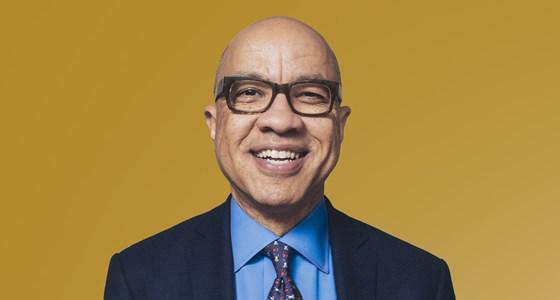Philanthropists must shift strategies to address the root causes of inequalities in the United States, panelists said at a March 22 event.
The event, titled “Philanthropy and America’s Racial Reckoning,” featured a conversation between Darren Walker, president of the Ford Foundation, and Georgetown University President John J. DeGioia (CAS ’79, GRD ’95) on the responsibility of philanthropists when addressing systemic inequity. The McCourt School of Public Policy’s Center for Public and Nonprofit Leadership hosted the virtual event.
Walker said that philanthropy aimed at systemic change is uncomfortable because it requires dismantling the institutions that made philanthropists successful in the first place.
“I think for many Americans, especially people who are successful in our economic social system, to have them engage in the hard work acknowledging the bias and the failures of our system is a difficult experience,” Walker said at the event. “It’s difficult because for those people — and I count myself as a successful person in this system — the system has worked for us.”

A 2020 working paper by researchers at Texas A&M University found that Americans tend to donate more relatively with a higher income. Most households gave around 1.5% of their income, while those taking home between $5 million and $10 million a year donated 4.3% of their income, on average. Those making at least $10 million a year donated 8.6%.
Walker discussed Dr. Martin Luther King Jr.’s belief that some philanthropists make donations without questioning the system that allowed them to garner an extreme level of wealth.
“Philanthropy, yes, can be about charity and generosity, but philanthropy should also be about dignity and justice,” Walker said. “And that is a different kind of engagement for the philanthropist. It does require the philanthropist to, when looking at a problem and assessing the solutions, to understand the systems that have benefitted the very philanthropists who have committed to solving the problem.”
Individuals must examine their own power and change unfair institutions, according to Walker.
“In our communities, we are not helpless,” Walker said. “We are not hopeless. We are not without any resilience or agency. So what are the things happening in our community, where we have an obligation and accountability? We cannot simply say it’s because of the system.”
Walker said that improving philanthropy to promote equity is critical to protecting democracy.
“If we want to achieve a stronger democracy, we must address issues of inequality, because the correlation of inequality, growing inequality, correlates with growing hopelessness in a society,” Walker said. “And the oxygen of democracy is hope. The oxygen of the American narrative, the American dream, if you will, is this idea that we are all naturally hopeful, optimistic, forward-looking people. Inequality undermines that. Inequality asphyxiates hope.”
In places like Hungary and Turkey, inequality has sparked the growth of xenophobic, nationalist, populist and right-wing movements, according to Walker.
“Look at what has happened to these countries where wedges have been pushed between citizens over issues like religion and culture, at the expense of looking at the real problems of the economic systems that generate the inequality in the first place,” Walker said. “Any of us who believe in democracy, who believe in capitalism, we ought to be worried, because for the first time in our lifetime, there are fewer democracies.”
Higher levels of income inequality decrease political interest, the frequency of political discussion, and participation in elections among all but the most affluent citizens, providing compelling evidence that greater economic inequality yields greater political inequality, according to a 2008 report.
Philanthropists must push for systemic change and against inequality, according to Walker.
“We’ve got work to do,” Walker said. “And that work has to do with really getting at the systemic reasons why there’s inequality, not the faux reasons that allow politicians to benefit from inequality, because that’s what’s happening.”




















